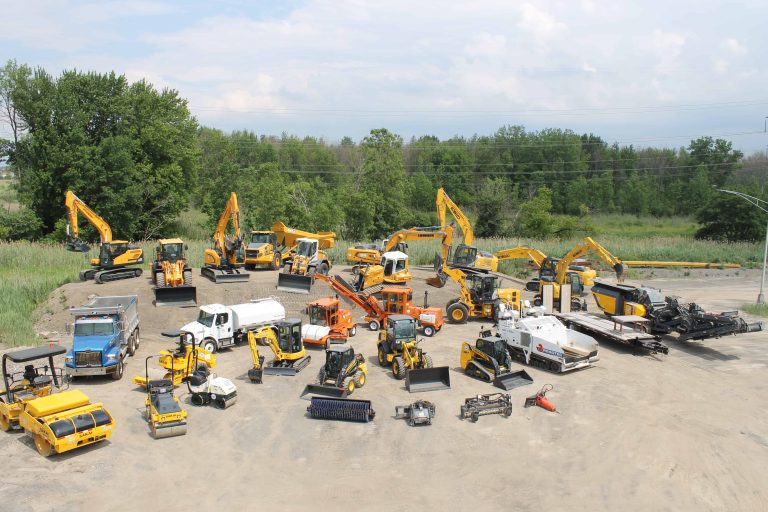Construction Equipment Rentals: Sturdy Equipment for Your Jobs
Construction Equipment Rentals: Sturdy Equipment for Your Jobs
Blog Article
Maximize Your Spending Plan by Comprehending the Expenses Connected With Construction Tools Leasings
Comprehending the complete scope of expenses linked with construction devices services is important for optimizing your budget. What techniques can be utilized to properly manage these expenses and make sure an extra efficient rental experience?
Review of Rental Expenses
When considering building and construction devices rentals, recognizing the associated expenses is paramount for efficient budgeting and project preparation. Rental costs can differ significantly based upon several variables, including devices type, duration of service, and location. The first rental fee usually reflects the devices's market need and its connected functional capabilities, affecting the total expense.
In enhancement to the base rental rate, supplementary prices may occur, such as transport fees, fuel additional charges, and upkeep charges. It is necessary to account for these extra expenditures to accurately evaluate the complete price of renting devices. In addition, the rental period can affect rates; longer services may receive reduced prices, while short-term services might incur greater daily charges.

Failure of Rental Prices
A thorough understanding of rental prices is necessary for specialists and job managers aiming to optimize their spending plans. Rental prices for building and construction tools commonly are composed of a number of elements, including base prices, time-based costs, and use fees.
Base prices are the core costs related to the rental of the equipment, often determined by the kind and size of the machinery. These prices can vary considerably, affected by aspects such as devices demand, schedule, and regional market fads. Time-based fees, which may be daily, weekly, or monthly, serve to suit different project timelines and rental periods.
Furthermore, rental rates may include usage costs, which are appropriate when equipment is utilized past a specified threshold, making sure that the rental company can make up damage. Seasonal need changes can additionally impact rental prices, with peak building and construction periods typically regulating greater prices.
In addition, recognizing the rental company's plans concerning upkeep and insurance can give additional understanding into the general cost structure. By assessing these elements, contractors can make educated choices, guaranteeing the option of rental equipment lines up with both task requirements and budget plan restraints.
Added Fees to Consider
Comprehending the ins and outs of added costs is crucial for professionals to manage their general leasing costs successfully. Past the typical rental prices, various additional fees can considerably affect the overall expense of devices leasing. These fees typically consist of shipment and pickup charges, which can vary based on distance and logistics associated with carrying the devices to and from the task website.
In addition, some rental firms might enforce gas additional charges if the equipment is returned with less gas than when rented. It is likewise essential to know prospective cleaning fees, especially for specific devices that requires thorough upkeep after use.

Completely evaluating the rental arrangement and clearing up these additional fees ahead of time can assist specialists stay clear of unexpected costs and make sure that spending plans stay intact throughout the job lifecycle.
Repair And Maintenance Expenditures
Regular repair and maintenance expenses are often neglected factors that can considerably influence the overall cost of construction equipment services. When leasing equipment, it is critical to take into consideration not only the rental charges however additionally the prospective expenses connected used bulldozer for sale with maintaining the machinery in ideal operating condition.
Lots of rental business consist of standard maintenance as component of the rental arrangement; however, a lot more unanticipated failures or substantial repairs can lead to added costs. It's vital to assess the rental contract carefully to comprehend what maintenance services are covered and what responsibilities drop on the renter.
Additionally, tools that is not properly maintained can result in inadequacies at work site, potentially boosting and creating delays job prices. To mitigate these threats, it is recommended to conduct regular evaluations and maintain open interaction with the rental service provider relating to any problems that emerge throughout usage.
Insurance Coverage and Responsibility Prices
Insurance policy and liability prices are essential parts that can substantially affect the general cost of building tools services (equipment rental company). These expenses guarantee that both the rental business and the client are safeguarded from prospective economic losses emerging from crashes, damage, or theft throughout the rental period

Additionally, customers should be mindful of any deductibles or exemptions in you could look here the insurance plan, as these can influence prospective out-of-pocket expenses. Comprehending the terms and conditions of any type of insurance policy coverage is crucial to avoid unforeseen costs. Eventually, budgeting for insurance and obligation expenditures can assist ensure a smoother rental experience and secure against monetary threats related to construction tasks.
Conclusion
In conclusion, an extensive understanding of the costs linked with construction equipment rentals is important for reliable budget plan monitoring. Inevitably, informed decision-making pertaining to tools leasings adds to the overall success of construction ventures.
Rental prices can differ dramatically based on a number of elements, consisting of tools type, duration of service, and place (construction equipment rentals). The rental duration can affect pricing; longer services may qualify for affordable rates, while temporary leasings might sustain higher day-to-day fees
By conducting comprehensive study and engaging with trusted rental firms, specialists can efficiently navigate the intricacies of rental pricing, inevitably maximizing their economic resources.
Beyond the typical rental prices, various supplementary fees can considerably impact the overall cost of tools leasing. Rental firms commonly provide obligation insurance that covers injuries to third events or damage to home, while tools damage insurance coverage can cover the price of repair work or substitute if the rented equipment is harmed.
Report this page